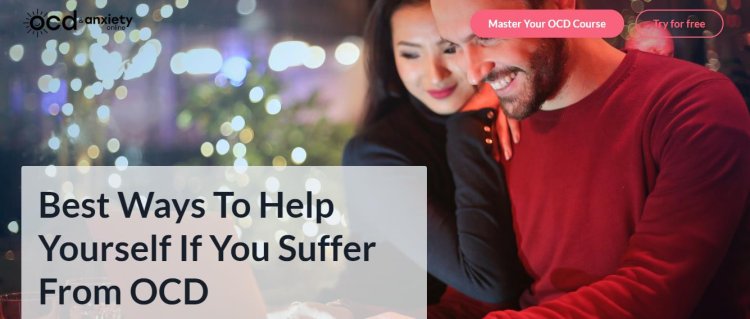Effective Strategies for Managing OCD: Self-Help and Treatment Options
OCD-Anxiety.com is a trusted online resource offering invaluable insights and support for those navigating the challenging landscape of Obsessive-Compulsive Disorder (OCD) and anxiety-related conditions. With expertly curated content, practical coping strategies, and user-friendly tools, the platform empowers individuals to understand their conditions better and take control of their mental health. From informative articles to a compassionate community forum, OCD-Anxiety.com serves as a beacon of hope, fostering understanding and fostering a sense of belonging on the journey to recovery.
Share this Post to earn Money ( Upto ₹100 per 1000 Views )

Obsessive-Compulsive Disorder (OCD) is a mental health condition characterized by persistent, unwanted thoughts (obsessions) and repetitive behaviors (compulsions) performed to alleviate anxiety caused by these thoughts. While OCD can be debilitating, there are various treatment options available that can significantly improve the quality of life for those affected.
OCD Self-Help Strategies
Self-help strategies can play a crucial role in managing OCD symptoms. Here are some effective methods:
1. Educate Yourself: Understanding OCD is the first step toward managing it. Read books, attend workshops, or join online forums to learn about the condition.
2. Mindfulness and Meditation: Practicing mindfulness and meditation can help you become more aware of your thoughts and reduce the anxiety associated with obsessions.
3. Routine and Structure: Establishing a daily routine can help reduce the chaos and uncertainty that can exacerbate OCD symptoms.
4. Healthy Lifestyle Choices: Regular exercise, a balanced diet, and sufficient sleep can improve overall mental health and resilience.
5. Avoidance of Triggers: Identify and try to avoid situations that trigger your OCD. However, this should be balanced with gradual exposure to these triggers under the guidance of a professional to build tolerance.
OCD Treatment Options
Professional treatment options are essential for effectively managing OCD. Here are some of the most common treatments:
1. Cognitive-Behavioral Therapy (CBT): This is the most widely used therapy for OCD. It helps individuals challenge and change negative thought patterns and behaviors.
2. Exposure and Response Prevention (ERP) Therapy: ERP is a type of CBT that involves gradually exposing individuals to their fears while preventing the compulsive behavior. Over time, this reduces the anxiety associated with the obsession.
3. Medication: Selective Serotonin Reuptake Inhibitors (SSRIs) are commonly prescribed to help manage OCD symptoms. They can be particularly effective when combined with therapy.
4. Group Therapy: Sharing experiences and strategies with others who have OCD can provide support and reduce feelings of isolation.
ERP Therapy: A Key OCD Treatment
Exposure and Response Prevention (ERP) Therapy is considered one of the most effective treatments for OCD. The process involves:
1. Identification of Triggers: Working with a therapist to identify situations or thoughts that trigger obsessions.
2. Gradual Exposure: Gradually exposing yourself to these triggers in a controlled environment.
3. Response Prevention: Learning to resist the urge to engage in compulsive behaviors in response to these triggers.
4. Building Tolerance: Over time, this process reduces the anxiety associated with the triggers and weakens the compulsion to perform certain behaviors.
Is There an OCD Cure?
While there is currently no cure for OCD, effective treatments can help manage the symptoms and improve the quality of life. Many individuals with OCD can lead fulfilling lives with the right combination of self-help strategies, therapy, and medication.
Managing OCD is a continuous process that involves a combination of self-help strategies, professional treatment, and support from loved ones. While OCD cannot be cured, effective management can significantly reduce symptoms and enhance the quality of life. If you or someone you know is struggling with OCD, consider seeking professional help to explore the best treatment options available.









